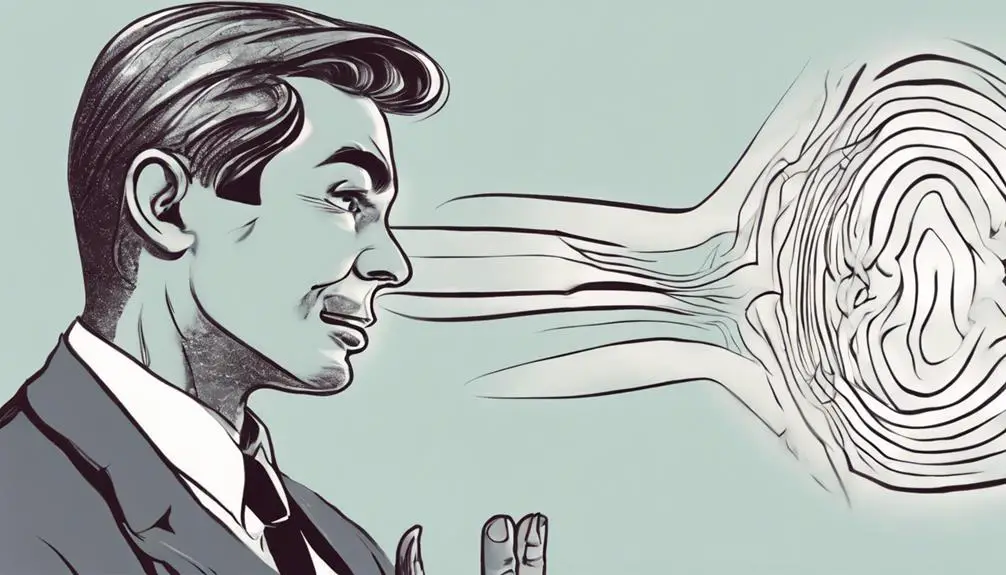Hypnosis Debunked
Unveiling the Truth About Hypnosis Myths
January 5, 2017 - Hypnosis Debunked
Hypnosis myths often misrepresent its true nature. Rather than mind control, hypnosis involves heightened suggestibility and therapeutic benefits like anxiety reduction. Memory alteration under hypnosis is focused on recall, not creating false memories. Entertainment hypnosis differs greatly from therapeutic sessions, emphasizing collaboration and relaxation. In reality, hypnosis is a heightened state of awareness, not sleep, allowing for exploration of the subconscious mind. When conducted by professionals, hypnosis is not dangerous and can offer various benefits like chronic pain management. Understanding these truths unveils the real potential of hypnosis.
Debunking the Mind Control Myth

Contrary to popular belief, hypnosis does not involve mind control, but rather a state of heightened suggestibility that can be voluntarily entered into by individuals. The power of suggestion plays a crucial role in hypnosis, where individuals are guided by a trained hypnotherapist to tap into their subconscious mind and make positive changes.
Research has shown that hypnosis can have various therapeutic benefits, such as reducing anxiety, managing pain, improving sleep, and enhancing overall well-being.
During a hypnotic state, individuals remain fully aware of their surroundings and cannot be forced to do anything against their will. Instead, they are more open to suggestion and able to focus their attention intensely on specific thoughts or behaviors. This heightened state of focus can help individuals break detrimental habits, overcome phobias, and address underlying emotional issues.
Clarifying the Memory Alteration Misconception
One common misconception surrounding hypnosis is the belief that it can alter or manipulate an individual's memories. Research has shown that while hypnosis can enhance the recall of certain memories through heightened focus and suggestion, it does not have the power to create false memories or permanently alter existing ones.
The process of memory manipulation through hypnosis raises significant ethical concerns, particularly regarding the potential for inadvertently implanting fabricated memories or distorting the truth.
Studies suggest that memories formed under hypnosis are not necessarily more accurate than those recalled in a wakeful state, highlighting the importance of caution when utilizing hypnosis for memory retrieval.
Ethical guidelines within the field of hypnotherapy emphasize the need for practitioners to prioritize the well-being and autonomy of their clients, refraining from suggestive techniques that may lead to memory distortion or manipulation.
Exposing the Entertainment Hypnosis Fallacy

Highlighting the discrepancy between the portrayal of hypnosis in entertainment and its reality in therapeutic practice sheds light on the Entertainment Hypnosis Fallacy. Stage shows often depict hypnosis as a form of mind control where individuals are made to cluck like chickens or perform other outlandish acts at the snap of a finger.
In reality, therapeutic hypnosis is a collaborative process where the individual retains full control and is guided to a state of heightened focus and suggestibility.
Suggestibility tests, commonly seen in stage hypnosis, are used to select participants who are more likely to engage in the performance aspect. These tests exploit the natural variance in suggestibility among individuals and do not accurately represent the therapeutic application of hypnosis.
In therapeutic settings, suggestibility is harnessed to facilitate relaxation, concentration, and the exploration of subconscious thoughts and behaviors.
Understanding the difference between the sensationalized portrayal of hypnosis in stage shows and its practical, therapeutic use is crucial in debunking the Entertainment Hypnosis Fallacy.
Dispelling the Hypnosis as Sleep Belief
Challenging the common misconception that hypnosis involves sleep, research and empirical evidence consistently demonstrate that hypnosis is a distinct and focused state of awareness. Contrary to the belief that individuals under hypnosis are unconscious or in a deep slumber, they are actually in a heightened state of suggestibility and concentration. This misconception stems from the relaxed demeanor often associated with hypnosis, leading observers to equate it with sleep.
Studies have shown the effectiveness of hypnosis in various applications, such as pain management, habit modification, and performance enhancement. By tapping into the subconscious mind, hypnosis can help individuals overcome limiting beliefs, fears, and behaviors. However, these positive outcomes are not a result of sleep but rather the focused attention and receptiveness that characterize the hypnotic state.
Dispelling the hypnosis as sleep belief is crucial in understanding the true nature and potential of hypnosis. By recognizing hypnosis as a unique psychological state that leverages suggestibility and focused awareness, individuals can appreciate its effectiveness in addressing a wide range of concerns, debunking common misconceptions along the way.
Challenging the Hypnosis Is Dangerous Notion

Research and empirical evidence consistently refute the notion that hypnosis is inherently dangerous, highlighting instead its potential benefits when conducted by trained professionals in appropriate settings.
Safety concerns regarding hypnosis often stem from misconceptions portrayed in the media or fictional portrayals that sensationalize the practice. However, when administered by qualified practitioners, hypnosis is generally considered safe and is even used as a complementary therapy in various medical and psychological interventions.
Numerous studies have demonstrated the therapeutic benefits of hypnosis in treating conditions such as chronic pain, anxiety disorders, and addiction. When used under the guidance of a skilled therapist, hypnosis can promote relaxation, enhance focus, and assist individuals in making positive behavioral changes.
The controlled state of focused attention induced during hypnosis allows individuals to explore their thoughts, feelings, and behaviors in a supportive environment, leading to personal insights and psychological healing.
Frequently Asked Questions
Can Anyone Be Hypnotized, or Are Some People Immune?
Individual differences in susceptibility to hypnosis exist, leading to the misconception that some individuals are immune. Research debunks this myth, showing that with skilled practitioners, most people can be hypnotized to varying degrees, highlighting individual variability.
Is Self-Hypnosis as Effective as Being Hypnotized by Someone Else?
Research suggests self-hypnosis can be as effective as being hypnotized by someone else for mental wellbeing and relaxation. It offers a powerful tool for self-discovery and empowerment, allowing individuals to tap into their inner resources for positive change.
Can Hypnosis Help With Physical Pain Management?
Hypnosis, utilizing the mind-body connection, is an alternative therapy that has shown promise in managing physical pain. Research suggests that hypnosis can help reduce pain perception, improve coping mechanisms, and enhance overall well-being.
How Long Do the Effects of Hypnosis Typically Last?
The duration of hypnosis effects varies among individuals but can have long-term impact in some cases. Research suggests that the effectiveness of hypnosis may persist over time, especially when reinforced with appropriate techniques and follow-up sessions.
Is It Possible to Get Stuck in a Hypnotic Trance?
It is highly unlikely to get stuck in a hypnotic trance. Hypnotic safety protocols are designed to prevent such occurrences. The long-term effects of hypnosis are generally positive, with minimal risk of adverse consequences when administered by a qualified professional.
Conclusion
In conclusion, the myths surrounding hypnosis are often based on misconceptions and lack of understanding. Through debunking the mind control myth, clarifying memory alteration misconceptions, exposing entertainment hypnosis fallacies, dispelling the hypnosis as sleep belief, and challenging the notion that hypnosis is dangerous, it is clear that hypnosis is a safe and effective tool for therapeutic purposes.
It is important to educate oneself on the realities of hypnosis and not be swayed by sensationalized myths.
